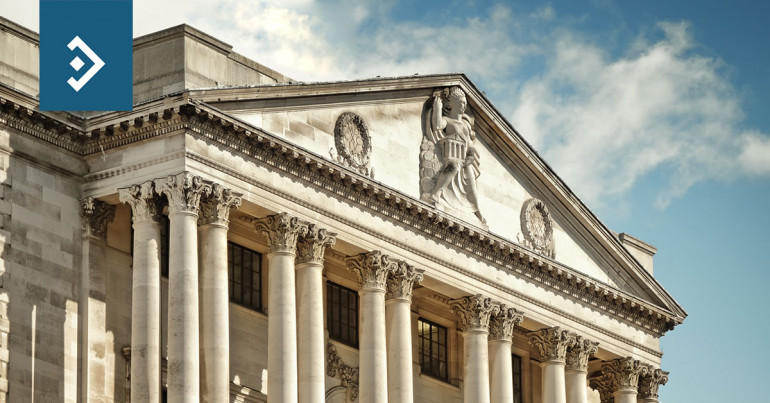
Supply side remains a concern
Morning mid-market rates – The majors
23rd September: Highlights
- 80% vaccination means recovery is on track
- FOMC signals some withdrawal
- Eurozone facing a labour shortage
BoE still deciding about inflation despite Bailey’s approach
There are sure to be votes in favour of a rate hike given the most recent comments of some members of the committee, but they are unlikely to garner sufficient support to elicit a change in policy.
There is no question that the recovery of the economy from the Coronavirus Pandemic is now sufficiently strong for the withdrawal of support to be considered.
However, with the Government withdrawing its furlough scheme completely from the end of this month, there is still sufficient doubt to ensure that a majority of MPC members will want to hang on for at least another month before they vote in favour of any change.
The reverse side of the coin is inflation. There are members of the Committee like Michael Saunders who appear to be perpetually concerned about rising inflation and will always appear hawkish in any straw poll of voting intentions. This month, the waters have been muddied by the arrival of two new members whose voting intentions are currently unclear.
The reputations of both Huw Pill, the new Chief Economist, and external member Catherine Mann are for them to be relatively hawkish. Mann has already spoken of the need to be tough on inflation, and Whale Pill grew a hawkish reputation at his previous employer, investment bank Goldman Sachs.
It has become fashionable to label every meeting of G7 Central Banks as the most significant since the crisis began, but as was seen with the comments last evening from the FOMC as the balance of whether action will be taken becomes more, opinions will be more evenly split, and volatility will increase.
The pound lost ground against a stronger dollar late yesterday as the FOMC meeting ended with a more hawkish view.
It fell to 1.3609, closing at 1.3622.
Considering your next transfer? Log in to compare live quotes today.
Dot Plot predicts rate rise in 2022
Jerome Powell at the press conference following the meeting was more hawkish than he has been recently, virtually confirming that the end of support for the economy is close.
He went on to say that the target for inflation has been met, and it doesn’t need a significantly stronger employment report to encourage the committee to act.
Powell played down the fact that inflation is likely to remain above the Fed’s target in the coming months. He also confirmed that there is broad support for the timing and the pace of the tapering of asset purchases.
This may be an oblique way of saying the opposite, that agreement is not total, although the market interpreted the comments overall as providing the potential for the taper to start as soon as next month’s meeting.
According to Powell, the economy will likely be well away from the conditions for lift off when the taper begins, while he expected it to be complete by the middle of next year. Powell expects inflation to remain elevated for the next few months before beginning to fade, although upside risks remain.
Bottlenecks in the economy created by the pace of the recovery both nationally and globally have remained longer than was projected.
In a reference to when rate hikes will begin, the Chairman commented that if inflation remains higher than expected.
Overall, the comments following the vote to leave both monetary policy and asset purchases unchanged fell within the boundaries of market expectation, although they were certainly at the more hawkish end of the spectrum.
So, with the latest most important meeting of the FOMC the market will now look towards the employment report for September, although that will not take place until October 8th, given that the first falls on a Friday.
The next FOMC meeting won’t take place until Nov 2nd and 3rd, with the minutes of yesterday’s meeting being released on 13th October.
As already mentioned, the dollar index rallied to a high of 93.51, closing at 93.47, although it has cooled a little in overnight trading in Asia, falling to a low, so far of 93.33.
Fears of Delta Variant being downplayed.
The level of consumer confidence continues to be high, although there continue to be pockets of concern.
With the recovery now well ahead of any expectations, the ECB is facing a dilemma over whether it needs to change the level of advance guidance that is being provided to the market.
With the next Monetary Policy Meeting not taking place until October 28th, there is room for speculation to grow whether there will be further reduction in bond purchases, although a hike in interest rates is still some way away.
Christine Lagarde will be acuity aware that the Bank has been burnt before in tightening policy too soon, by giving into hawkish views, and will not want to make that mistake again.
As mentioned recently, the potential for a banking crisis refuses to go away.
As has often been the case in recent history, the roots for any crisis are being seen in Italy.
The purchase by UniCredit of the saleable parts of ailing, but historic bank Monte Dei Paschi di Siena will shake the status quo that has existed for centuries.
The disappearance of such an historic institution will be hard for the market to take but, ever the pragmatist, Italian Prime Minister Mario Draghi is in favour of the change which could be a catalyst not just for Italy but for the entire Eurozone.
Yesterday, following the Central Bank meetings, the euro found itself somewhat side-lined. It fell to a low of 1.1684 closing at 1.1687, its lowest closing rate in a month, and has now reached a critical point.

About Alan Hill
Alan has been involved in the FX market for more than 25 years and brings a wealth of experience to his content. His knowledge has been gained while trading through some of the most volatile periods of recent history. His commentary relies on an understanding of past events and how they will affect future market performance.”



